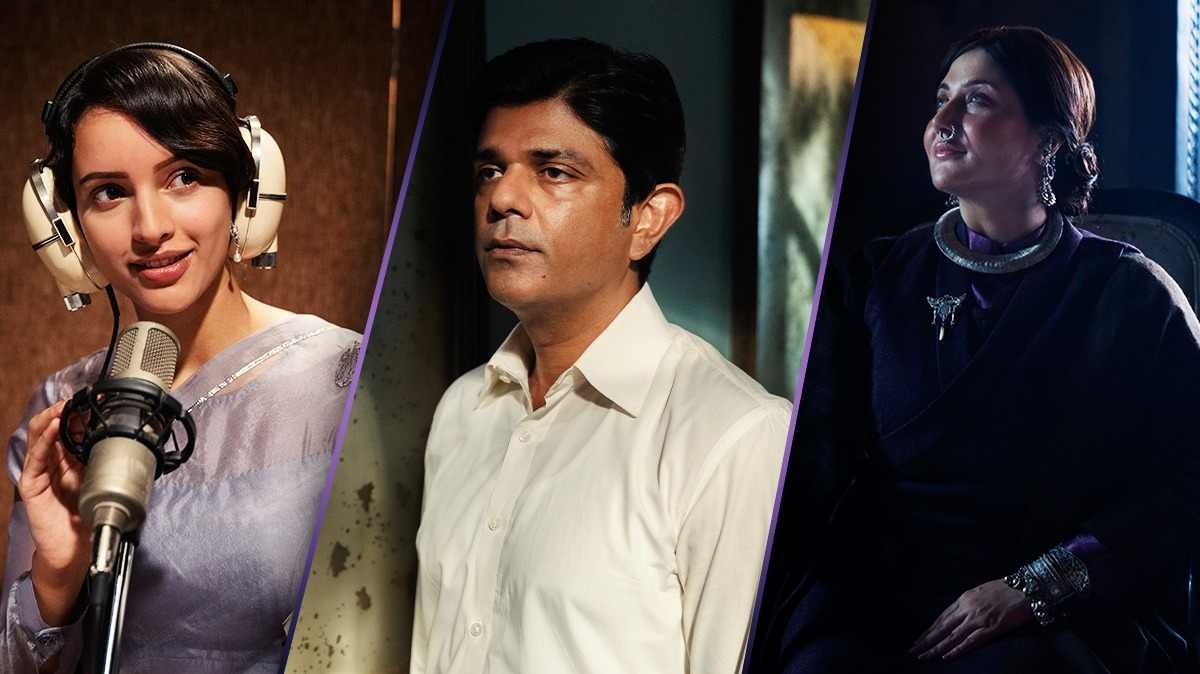Anvita Dutt’s film Qala draws its strength from the performances of Triptii Dimri and Swastika Mukherjee, while also introducing Babil Khan in his first-ever role. This debut drew commendation from both audiences and critics alike. The storyline centres on Qala Manjushree (Triptii Dimri).
An ambitious vocalist caught in a society controlled by patriarchy and unfair treatment based on gender. Taking place during the era before India gained independence, the plot follows Qala’s journey to stardom and the challenges that arise along the way, including a turbulent connection with her mother.

And rivalry with a fellow musician who slowly pushes her to her breaking point.
What drives Qala to descend into madness?
The events in Qala do not follow a linear path, moving back and forth between memories and the present. The story opens with Qala being celebrated by a large audience as she receives a golden vinyl, a symbol of her recognition.
However, during an interview, she starts reliving traumatic experiences that show the root of her need for validation and affection, especially from her mother. We discover that although Qala survived during childbirth, her twin brother died, and this tragedy planted the seed of resentment in her mother’s heart.
As time passed, this resentment only grew stronger. While she battles to earn some affection and attention from her controlling mother, Urmila, Qala becomes consumed by bitterness and frustration.
These feelings increase sharply as the story nears its final moments, painting a picture of a young woman on the verge of losing control, mainly due to the emotional damage caused by Urmila and others close to her.
It is during a performance that Urmila notices Jagan (played by Babil Khan), a young man with remarkable musical talent, and immediately invites him into their lives. Her decision only worsens her relationship with Qala, which was already in a fragile state.
As the story reaches its height, we witness a dark memory from before Jagan’s passing, one that shows how Qala’s jealousy became dangerous. She ends up putting mercury in Jagan’s milk, damaging his voice to stop him from succeeding.
Although Qala eventually wins awards and receives praise from legendary musicians, she remains burdened by guilt for destroying someone else’s talent. Her mind becomes tormented by hallucinations where Jagan accuses her of taking the life he was meant to have.
Neither her recognition nor the support of therapists brings peace, and her guilt grows stronger until she chooses to end her own life. In the emotionally charged ending, Qala, mentally unstable, tries several times to reach out to her mother, calling her in a desperate bid for comfort.
But Urmila remains distant, ignoring her daughter’s cries. In the closing moments, Qala ends her life by hanging herself, echoing Jagan’s earlier death. Although she manages to achieve the fame and success Jagan once desired, she remains deeply unhappy and alone, ending her life in the same painful way.
When Urmila finally returns to bring Qala home, she realises too late what has happened. She storms into the room, only to be met with the horrifying sight of Qala’s lifeless body. That moment leaves Urmila to carry the emotional burden of losing two people, both gone in the same tragic way.
The film uses its final scene to reflect on the weight of regrets and missed chances, especially when those regrets are fed by bitterness and invisible emotional walls.
How Jagan’s death affects the relationship between Qala and her mother
Babil Khan brings life to the character of Jagan, a humble young man with lofty aspirations, making a powerful first impression. With expressive eyes and a naturally strong voice, his presence wins Urmila over, and she begins to see him as the son she never had.
She channels into Jagan the dreams she once carried for her lost child. Urmila treats him like her own, training him musically and caring for him as if he were family.
All the love and encouragement that Qala never received now goes to Jagan, revealing how Urmila unconsciously replaces her daughter with someone she sees as more worthy.



